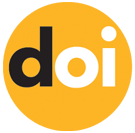The importance of inclusive learning and teaching enviroment and teacher reflection
Keywords:
child, inclusive learning, self-reflection, teacher-educator reflection, teaching environmentAbstract
The research aims to identify the knowledge, attitudes, and practices of the preschool teachers of the target group regarding the implementation/development of inclusive education. Structure/methodology /approach-10 teachers participated in this study, who were also involved in the research carried out within the framework of the project "teacher reflection for quality early inclusive education". An early inclusive education environment self-reflection method was used, developed within the framework of the early childhood inclusive education (I) project implemented by the European agency for special needs and inclusive education from 2015 to 2017 (www.european-agency.org/agency-projects/inclusive-early childhood-education), our adapted version. Research is qualitative. The reflection method included four open questions: This article reflects educators on the "inclusive environment of teaching and learning". Conclusion: the survey participants ' responses prove that educators and educators are aware of the desire and need to increase their knowledge about the inclusive environment of learning and teaching, but they find it difficult to reflect on these issues and analyze them based on their practice, which can again be considered as their low competence in this regards. Novelty/value: the study of teacher-educator reflection is not conducted on the example of our practice.
Downloads
References
Bolton, G. (2010). Reflective practice: Writing and professional development. Sage publications.
Conceição, P., & Heitor, M. V. (2002). Knowledge interaction towards inclusive learning: Promoting systems of innovation and competence building. Technological Forecasting and Social Change, 69(7), 641-651. https://doi.org/10.1016/S0040-1625(02)00286-X
Epstein, I., Stephens, L., Severino, S. M., Khanlou, N., Mack, T., Barker, D., & Dadashi, N. (2020). “Ask me what I need”: A call for shifting responsibility upwards and creating inclusive learning environments in clinical placement. Nurse education today, 92, 104505. https://doi.org/10.1016/j.nedt.2020.104505
Gallagher, T., Griffin, S., Parker, D. C., Kitchen, J., & Figg, C. (2011). Establishing and sustaining teacher educator professional development in a self-study community of practice: Pre-tenure teacher educators developing professionally. Teaching and teacher education, 27(5), 880-890. https://doi.org/10.1016/j.tate.2011.02.003
Gibbs, G. (1988). Learning by doing: A guide to teaching and learning methods. Further Education Unit.
Gregg, N., Chang, Y., & Todd, R. (2012). Social media, avatars, and virtual worlds: re-imagine an inclusive learning environment for adolescents and adults with literacy barriers. Procedia Computer Science, 14, 336-342. https://doi.org/10.1016/j.procs.2012.10.038
Han, S., & Lee, M. K. (2022). FAQ chatbot and inclusive learning in massive open online courses. Computers & Education, 179, 104395. https://doi.org/10.1016/j.compedu.2021.104395
Hepsiba, N., Burugapudi, E., & Rao, Y. P. (2017). Teacher education. International Research Journal of Engineering, IT & Scientific Research, 3(5), 12-18. Retrieved from https://sloap.org/journals/index.php/irjeis/article/view/570
Johns*, C. (2005). Balancing the winds. Reflective practice, 6(1), 67-84.
Kolb, D. A. (2014). Experiential learning: Experience as the source of learning and development. FT press.
Malazonia, D., Macharashvili, T., Maglakelidze, S., & Chiabrishvili, N. (2021). Developing students’ intercultural values and attitudes through history education in monocultural school environments (Georgian-language school case study). Intercultural Education, 32(5), 508-524.
Meijer, C., Soriano, V., & Watkins, A. (2007). Inclusive education across Europe: Reflections upon 10 years of work from the European Agency for Development in Special Needs Education. Childhood Education, 83(6), 361-365.
Murray, J., & Male, T. (2005). Becoming a teacher educator: Evidence from the field. Teaching and teacher education, 21(2), 125-142. https://doi.org/10.1016/j.tate.2004.12.006
Nurfatuhiyah, .-. (2017). Learning materials development on descriptive texts based on local culture as learning at junior high school. International Research Journal of Engineering, IT & Scientific Research, 3(6), 39-55. Retrieved from https://sloap.org/journals/index.php/irjeis/article/view/9
Reid, B. (2000). The role of the mentor to aid reflective practice. Reflective Practice in Nursing: The Growth of the Professional Practitioner. Second edition. Oxford, Blackwell Science.
Rolfe, G., Freshwater, D., & Jasper, M. (2001). Critical reflection for nursing and the helping professions a user's guide.
Schön, D. A. (2017). The reflective practitioner: How professionals think in action. Routledge.
Smallwood, J., Schooler, J. W., Turk, D. J., Cunningham, S. J., Burns, P., & Macrae, C. N. (2011). Self-reflection and the temporal focus of the wandering mind. Consciousness and cognition, 20(4), 1120-1126. https://doi.org/10.1016/j.concog.2010.12.017
Takano, K., & Tanno, Y. (2009). Self-rumination, self-reflection, and depression: Self-rumination counteracts the adaptive effect of self-reflection. Behaviour research and therapy, 47(3), 260-264. https://doi.org/10.1016/j.brat.2008.12.008
Thomas, L. (2016). Developing inclusive learning to improve the engagement, belonging, retention, and success of students from diverse groups. In Widening higher education participation (pp. 135-159). Chandos Publishing. https://doi.org/10.1016/B978-0-08-100213-1.00009-3
Wain, A. (2017). Learning through reflection. British Journal of Midwifery, 25(10), 662-666.
Zeichner, K. (2005). Becoming a teacher educator: A personal perspective. Teaching and teacher education, 21(2), 117-124. https://doi.org/10.1016/j.tate.2004.12.001
Published
How to Cite
Issue
Section
Copyright (c) 2022 International journal of humanities, literature & arts

This work is licensed under a Creative Commons Attribution-NonCommercial-NoDerivatives 4.0 International License.
Articles published in the International Journal of Humanities, Literature & arts (IJHLA) are available under Creative Commons Attribution Non-Commercial No Derivatives Licence (CC BY-NC-ND 4.0). Authors retain copyright in their work and grant IJHLA right of first publication under CC BY-NC-ND 4.0. Users have the right to read, download, copy, distribute, print, search, or link to the full texts of articles in this journal, and to use them for any other lawful purpose.
Articles published in IJHLA can be copied, communicated and shared in their published form for non-commercial purposes provided full attribution is given to the author and the journal. Authors are able to enter into separate, additional contractual arrangements for the non-exclusive distribution of the journal's published version of the work (e.g., post it to an institutional repository or publish it in a book), with an acknowledgment of its initial publication in this journal.














